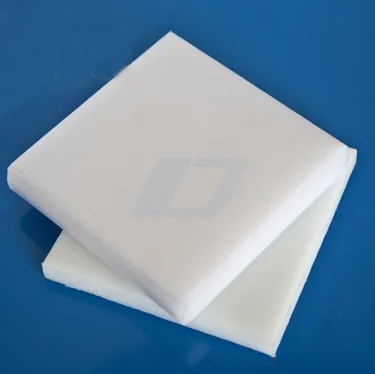The Ultimate Guide to HDPE Sheets: Everything You Need to Know
HDPE sheets have become increasingly popular in various industries due to their exceptional properties and versatility. If you're looking for a comprehensive resource on HDPE sheets, you've come to the right place. In this article, we'll delve deep into the world of HDPE sheets, exploring their features, applications, benefits, and more. Whether you're a business owner, a DIY enthusiast, or simply curious about this remarkable material, this guide will provide you with all the essential information you need.
Understanding HDPE Sheets
HDPE stands for High-Density Polyethylene, which is a thermoplastic polymer renowned for its high strength-to-density ratio. HDPE sheets are manufactured through a specialized process that involves melting high-density polyethylene resin and extruding it into flat sheets of various thicknesses. The result is a durable and flexible material with excellent chemical resistance, impact strength, and weatherability.
Key Features and Properties
Durability: HDPE sheets are incredibly durable and can withstand heavy loads, making them ideal for structural applications.
Chemical Resistance: HDPE is highly resistant to chemicals, acids, and solvents, making it suitable for industries such as pharmaceuticals, food processing, and chemical manufacturing.
Weatherability: HDPE sheets exhibit exceptional resistance to UV radiation and harsh weather conditions, making them suitable for outdoor applications.
Flexibility: Despite its rigidity, HDPE sheets are flexible and can be easily molded or bent to fit various shapes and forms.
Lightweight: HDPE has a low density, making it lightweight and easy to handle, transport, and install.
Recyclability: HDPE is a highly recyclable material, contributing to sustainability and environmental preservation.
Applications of HDPE Sheets
HDPE sheets find applications in a wide range of industries and sectors due to their remarkable properties. Let's explore some of the common applications:
1. Packaging Industry
HDPE sheets are extensively used in the packaging industry for manufacturing plastic bottles, containers, and packaging films. Their durability, chemical resistance, and recyclability make them an ideal choice for storing and transporting various products, including beverages, cosmetics, cleaning agents, and more.
2. Construction and Building Materials
In the construction industry, HDPE sheets play a crucial role in applications such as wall cladding, roofing, and underground piping systems. Their excellent strength, weatherability, and corrosion resistance make them suitable for both interior and exterior use. Additionally, HDPE sheets are often used as a barrier against moisture, preventing water damage and maintaining structural integrity.
3. Agriculture and Horticulture
HDPE sheets are widely used in the agricultural sector for applications such as greenhouse roofing, irrigation systems, and lining of ponds or reservoirs. Their UV resistance and flexibility make them ideal for protecting crops, conserving water, and creating efficient farming solutions.
4. Marine Industry
Due to its exceptional resistance to water, chemicals, and corrosion, HDPE is extensively utilized in the marine industry. It is used for manufacturing boat hulls, pontoons, dock fenders, and various other marine components. HDPE's buoyancy and durability make it an excellent choice for maritime applications.
5. Industrial and Chemical Processing
In industrial settings, HDPE sheets are widely employed for chemical storage tanks, processing equipment, and piping systems. The material's high chemical resistance ensures the safe storage and transport of various corrosive substances, contributing to a secure and efficient working environment.
Benefits of HDPE Sheets
HDPE sheets offer numerous benefits that make them a preferred choice in various industries. Here are some notable advantages:
Cost-Effective: HDPE sheets are cost-effective compared to other materials while providing exceptional performance and durability, resulting in long-term cost savings.
Low Maintenance: Due to their inherent resistance to chemicals, weather, and impact, HDPE sheets require minimal maintenance, reducing operational costs.
Environmental Sustainability: HDPE is recyclable and can be used in the production of new plastic products, promoting a circular economy and reducing environmental impact.
Versatility: HDPE sheets can be customized and fabricated to meet specific project requirements, offering design flexibility and creative possibilities.
Safety: HDPE is a non-toxic material, ensuring the safety of both users and the environment. It is widely used in applications involving food, beverages, and pharmaceuticals.
Conclusion
In conclusion, HDPE sheets are an excellent choice for a wide range of applications, thanks to their exceptional features and benefits. From packaging to construction, agriculture to marine, and industrial to horticulture, HDPE sheets offer unmatched durability, chemical resistance, and versatility. By understanding the properties and applications of HDPE sheets, you can make informed decisions and explore innovative possibilities for your projects.



